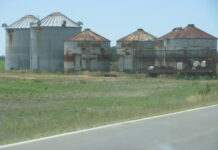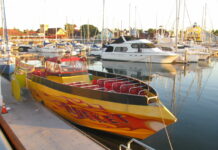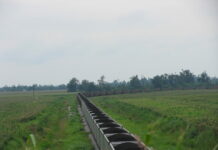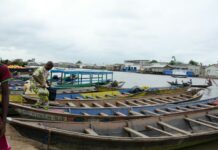Photo Credit: Global Diaspora News (www.GlobalDiasporaNews.com).
What happened in March? Haiti’s two largest gang coalitions joined forces under a broad front known as Viv Ansanm, launching coordinated attacks to seize control of critical sites in the capital Port-au-Prince and deter a Kenya-led international security mission from deploying. As the crisis escalated, outside pressure pushed Haiti’s various political groupings to agree on the formation of a transitional presidential council – comprising seven voting members and two non-voting civil society representatives – that can address the country’s myriad crises.
Why does it matter? Haiti is no stranger to criminal mayhem, but the present inter-gang dynamic is something new. In this latest offensive, rival gangs have sought to set aside their differences and forge a united front in the face of what they perceive as a shared existential threat – the multinational security force. The transitional council offers a glimmer of hope for the besieged country, but the challenges ahead are immense.
What to watch in the coming weeks and months? With gang rivalries fierce and alliances ever-shifting, Viv Ansanm could collapse at any time. But if the coalitions are able to uphold their pact, the security situation could deteriorate further, with dire consequences for ordinary Haitians struggling amid an ever-worsening humanitarian crisis.
The new transitional government’s challenge will be to rally what remains of state institutions, confront the gangs and steer the country towards elections. But political divisions could impede its decision-making ability, providing gangs with the space to launch more brutal assaults and consolidate control. They could also exploit the uncertainty and try to seize power by broadening their alliance to include politicians such as Guy Philippe, the rebel leader and ex-convict who proposed heading a three-person presidential council, and who remains at a distance from the appointed seven-member council.
Resumption of talks to deploy the international security mission will likely be met with another surge of gang assaults fighting to deter its deployment; if the gangs continue to carry out coordinated attacks during this offensive, the Haitian police could crumble. When the mission arrives, which could take months, gangs may look to mount simultaneous offensives against mission personnel and the police.
What should be done? The transitional presidential council’s first priority upon installation, which is expected in the coming days, will be to confront the turmoil engulfing Port-au-Prince. It should appoint an interim Prime Minister and quickly resume talks with foreign partners to accelerate deployment of the security mission. It should also discuss potential stopgap measures until this force is ready, given continued opposition from some corners in Kenya and the mission’s funding shortfalls.
The council also needs to present a cohesive front. Caribbean leaders announced that it would make decisions by majority vote, which should enable it to move swiftly, but could exacerbate divisions between members if some feel frozen out. To prevent the council from breaking down, its members should strive to maintain unity and act decisively in the public interest.
Source of original article: RSS (www.crisisgroup.org).
The content of this article does not necessarily reflect the views or opinion of Global Diaspora News (www.GlobalDiasporaNews.com).
To submit your press release: (https://www.GlobalDiasporaNews.com/pr).
To advertise on Global Diaspora News: (www.GlobalDiasporaNews.com/ads).
Sign up to Global Diaspora News newsletter (https://www.GlobalDiasporaNews.com/newsletter/) to start receiving updates and opportunities directly in your email inbox for free.
































